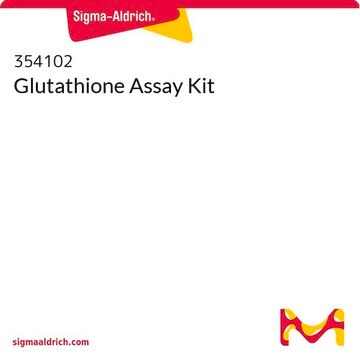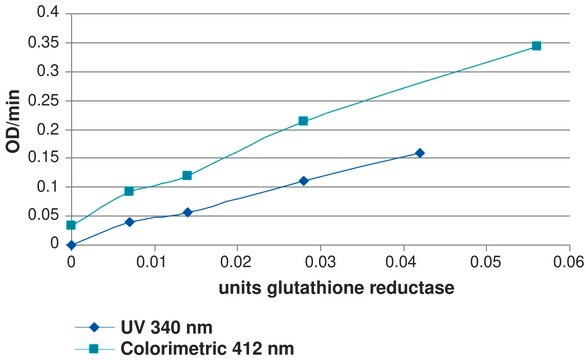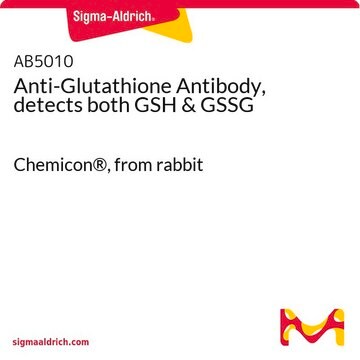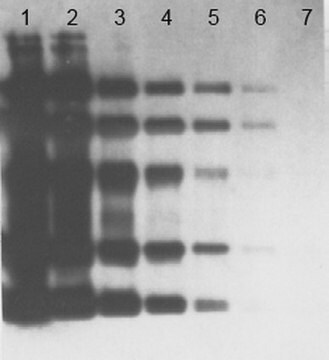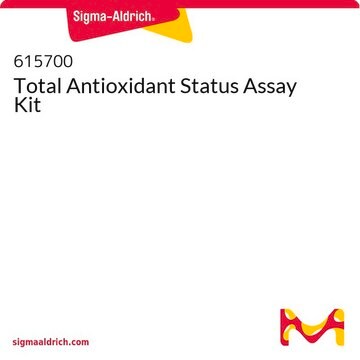CS1020
Glutathione Assay Kit, Fluorimetric
sufficient for 200 multiwell tests
Synonym(s):
GSH Quantification Kit
About This Item
Recommended Products
usage
sufficient for 200 multiwell tests
Quality Level
shipped in
wet ice
storage temp.
−20°C
Gene Information
human ... GSTA4(2941)
Application
Biochem/physiol Actions
Analysis Note
Kit Components Only
- Assay Buffer 50 mL
- Substrate Solution 1 mL
- Lysis Buffer 10x 1.5 mL
- Glutathione S-Transferase 1 mL
- Staurosporine Ready Made 100 μL
- Glutathione, reduced 300 mg
related product
Storage Class
10 - Combustible liquids
wgk_germany
WGK 3
flash_point_f
Not applicable
flash_point_c
Not applicable
Choose from one of the most recent versions:
Certificates of Analysis (COA)
Don't see the Right Version?
If you require a particular version, you can look up a specific certificate by the Lot or Batch number.
Already Own This Product?
Find documentation for the products that you have recently purchased in the Document Library.
Customers Also Viewed
Our team of scientists has experience in all areas of research including Life Science, Material Science, Chemical Synthesis, Chromatography, Analytical and many others.
Contact Technical Service
